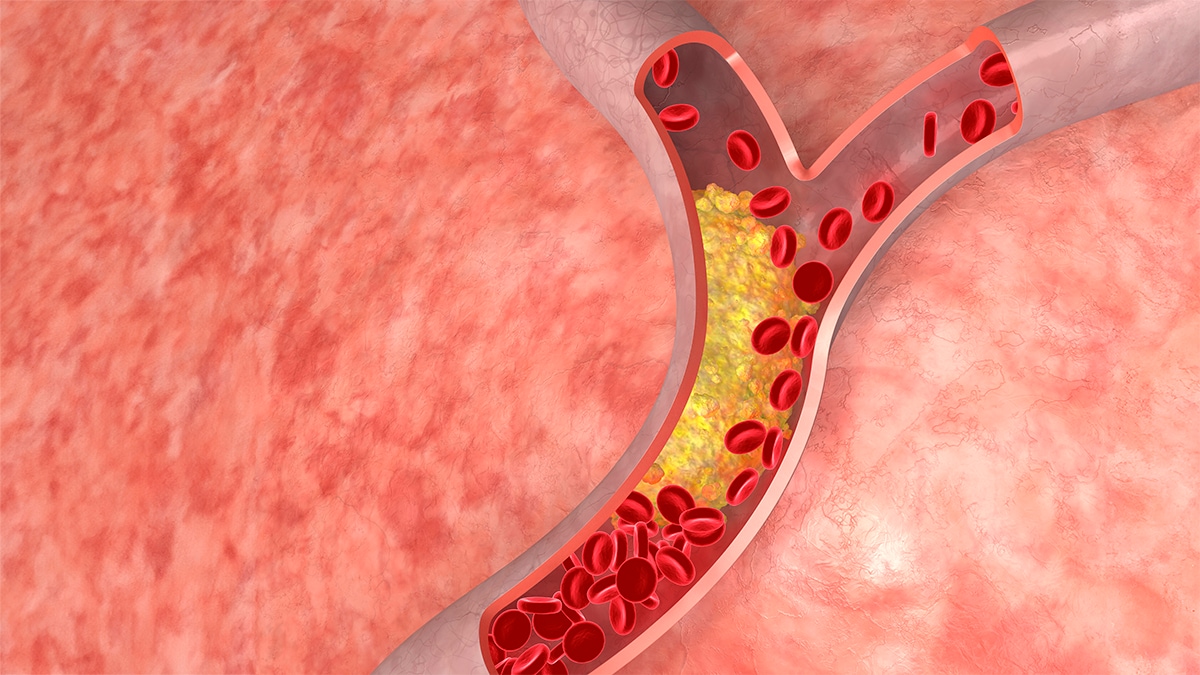Key points
- Blood cholesterol is a waxy, fat-like substance made by your liver.
- Millions of people in the United States have high cholesterol.
- High cholesterol is having a total cholesterol above 200 mg/dL.

What it is
Blood cholesterol is a waxy, fat-like substance made by your liver. Blood cholesterol is essential for good health. Your body needs it to perform important jobs, such as making hormones and digesting fatty foods.
Your body makes all the blood cholesterol it needs. Experts recommend that people eat as little dietary cholesterol as possible.
Dietary cholesterol is found in animal foods, including meat, seafood, poultry, eggs, and dairy products. Learn more about preventing high cholesterol by making healthy eating choices.
What do blood cholesterol numbers mean?
Cholesterol is measured in milligrams per deciliter (mg/dL). When you go to a health care professional to get your cholesterol checked, this test will usually check the levels of cholesterol and triglycerides in your body. (A cholesterol check is also called a lipid panel or lipid profile.)
- Low-density lipoprotein (LDL) or "bad" cholesterol. Having high levels of LDL cholesterol can lead to plaque buildup in your arteries and result in heart disease or stroke.
- High-density lipoprotein (HDL) or "good" cholesterol. HDL is known as "good" cholesterol because high levels of it can lower your risk of heart disease and stroke.
- Triglycerides, a type of fat in your blood that your body uses for energy. The combination of high levels of triglycerides with either low HDL cholesterol or high LDL cholesterol levels can increase your risk for heart attack and stroke.
- Total cholesterol, the total amount of cholesterol in your blood based on your HDL, LDL, and triglycerides numbers.
Learn more about LDL and HDL cholesterol and triglycerides.
What is high cholesterol?
If you are an adult or child, high cholesterol is having a total cholesterol above 200 mg/dL.1 This condition is also called hyperlipidemia.
Millions of people in the United States have high cholesterol. It can cause health problems.
Work with your health care team to prevent and manage high cholesterol by working toward optimal cholesterol levels.
Optimal Cholesterol Levels1
Total cholesterol
About 150 mg/dL
LDL (“bad”) cholesterol
About 100 mg/dL
HDL (“good”) cholesterol
At least 40 mg/dL in men and 50 mg/dL in women
Triglycerides
Less than 150 mg/dL
Signs and symptoms
Certain health conditions, such as type 2 diabetes and obesity, can raise your risk for high cholesterol. Lifestyle factors, such eating a diet high in saturated and trans fats and not getting enough activity, can also raise your risk for high cholesterol. Some people who have a family history of high cholesterol can also be at risk for high cholesterol. All these factors are called "risk factors."
You can't control some of these risk factors, such as your age or your family history. But you can take steps to lower your risk for high cholesterol by changing things you can control.
What problems does high cholesterol cause?
Having high blood cholesterol can lead to a buildup called "plaque" on the walls of your arteries (a type of blood vessel).
As plaque builds up over time, the insides of your arteries narrow. This narrowing blocks blood flow to and from your heart and other organs. When blood flow to the heart is blocked, it can cause chest pain (also called angina) or a heart attack (also called myocardial infarction).

High cholesterol also increases your risk for heart disease and stroke, two leading causes of death in the United States.
Prevention
Strong evidence shows that eating patterns that include less dietary cholesterol are associated with reduced risk of cardiovascular disease. Learn how to prevent, treat, and manage high cholesterol.
Your overall risk for high cholesterol depends on many factors. Learn what increases your risk for high cholesterol.
How do I know if I have high cholesterol?
The only way to know whether you have high cholesterol is to get your cholesterol checked by your health care team. Talk with your health care team about how often you should have your cholesterol screened. Learn about getting your cholesterol checked and why it is important.
Resources
- MedlinePlus: Cholesterol
- USDA: Dietary Guidelines for Americans, 2020–2025; Fats and Cholesterol
- NHLBI: High Blood Cholesterol—What You Need to Know
- Grundy SM, Stone NJ, Bailey AL, et al. 2018 AHA/ACC/AACVPR/AAPA/ABC/ACPM/ADA/AGS/APhA/ASPC/NLA/PCNA guideline on the management of blood cholesterol: a report of the American College of Cardiology/American Heart Association Task Force on Clinical Practice Guidelines. Circulation. 2019;139(25):e1082–e1143.
